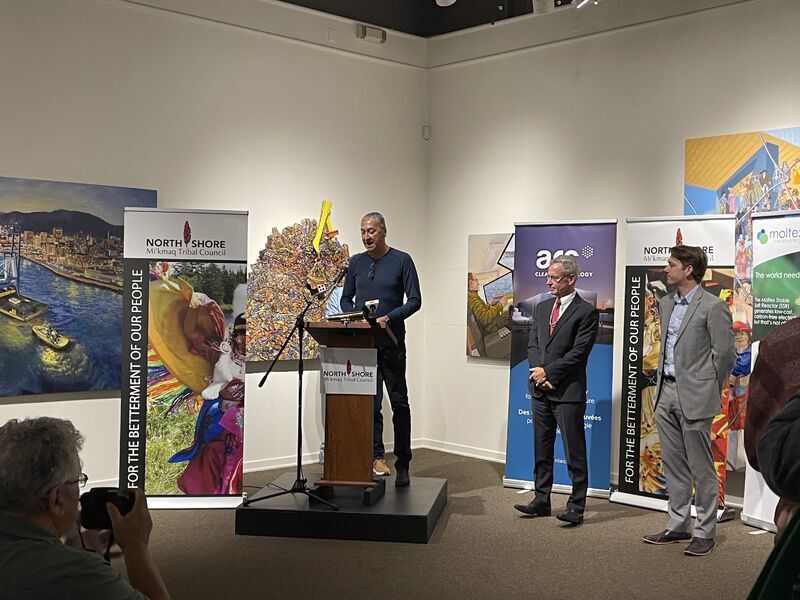On the eve of Canada’s National Day for Truth and Reconciliation, the Saint John-headquartered North Shore Mi’kmaq District Council has inked $3 million worth of investment deals with two makers of next-generation nuclear reactors.
The two nuclear companies, Moltex Energy and ARC Clean Technology, both plan to build "small modular reactors" in New Brunswick. The new systems will be less than a third of the size of conventional nuclear reactors, producing about 100 megawatts in ARC’s case and 300 megawatts from the planned Moltex reactor, compared to an average of about 1,000 from prior generation systems. The Moltex reactor will also use recycled nuclear waste as its fuel.
ARC plans to have its reactor up and running at NB Power's existing Point Lepreau site by 2029, with Moltex’s coming online in the 2030s. The council bought $2 million worth of shares in Moltex and $1 million worth of ARC shares, although the details of the transactions are confidential, the council said in a statement.
“As Indigenous people, we believe that the decisions we make today should result in a sustainable world seven generations into the future,” said council general manager Jim Ward.
“With this investment, we are building a legacy for our youth, as well as our communities and the environment. We are laying the groundwork for a prosperous future and opportunities that can be passed down for years to come.”
Moltex was founded in 2012 by John Durham and now-chief scientist Ian Scott. In 2021, the company received $3 million from the Atlantic Canada Opportunities Agency and $47.5 million from the federal government’s Strategic Innovation Fund, with the company committing to matching those figures via its own investments in its Point Lepreau project.
ARC, meanwhile, was co-founded by venture capitalist Donald Wolf and former U.S. Department of Energy official Scott Campbell in 2006. In 2021, the New Brunswick government announced $20 million of funding for the company, contingent on it securing another $30 million from the private sector.
“Building and maintaining sincere, long-term and mutually beneficial relationships with Indigenous communities is an important priority for ARC,” said CEO Bill Labbe. “We are grateful to North Shore Mi’kmaq Tribal Council and their member communities for the establishment of this historic alliance.”
Formed in 1987, meanwhile, the council represents the First Nations communities of Oinpegitjoig, or Pabineau; Ugpi’Ganjig, or Eel River Bar; Natoaganeg, or Eel Ground; L’nui Menikuk, or Indian Island; Tjipogtotjg, or Buctouche; Metepenagiag, or Red Bank; and Amlamgog, or Fort Folly.
“As we’ve learned more about ARC and Moltex through our work with them over the years, we’ve come to understand their innovation and technology as one part of the greater effort against climate change,” said George Ginnish, council chief executive and chief of the Natoaganeg First Nation.
“We found that both companies are dedicated to clean energy and waste reduction, which align with our values of a sustainable legacy for generations to come.”
The National Day for Truth and Reconciliation is meant to encourage deeper reflection, learning and public dialogue on the relationship between Indigenous and non-Indigenous Canadians. In June 2021, the Canadian government passed Bill C-5, which says the National Day for Truth and Reconciliation will be held each year on Sept. 30.










